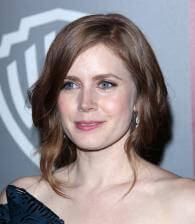5 1/2 Public Speaking Lessons from the Golden Globes
The Public Speaker and her friend Sherri Barksdale share 5 1/2 commonly overlooked public speaking lessons learned from watching the 2014 Golden Globes.
Lisa B. Marshall
Listen
5 1/2 Public Speaking Lessons from the Golden Globes
My friend Sherri Barksdale is a big fan of awards shows. We’ve been watching them together since we were kids. I think many people find the emotional speeches from the winners inspiring.
But this year’s Golden Globes Awards only inspired us to come up with a list of lessons for public speakers. Thanks Sherri for suggesting this episode and helping to write it!>
Let’s take a look at some of the public speaking lessons we can learn from this year’s awards show:
Lesson #1: Eat Before You Speak
When Hollywood veteran Jacqueline Bisset won her award for Best Supporting Actress in a TV Movie or Miniseries, she gave an awkward acceptance speech. She stood silently for a bit, and then made a statement that was bleeped out, and then rambled on about forgiveness being the best beauty secret.
Why the strange speech? Jacqueline Bisset blamed it on being hungry. She was not paying attention and was wondering where her dinner was. Whether this is the real reason or not, there’s a lesson here. Don’t go on stage hungry. Even if food is being served, eat a small meal before you go in case something goes wrong. The same thing applies to interviews—always carry a protein bar in your briefcase so you can eat something on the way to the restroom if necessary.
Lesson #2: Skip the Vodka

Lesson #3: Expect the Unexpected
When Sherri and I first started watching awards ceremonies, we thought it was funny when actors would get up on stage, declare they never expected to win, and then pull out their well-prepared scripts. Now we see the wisdom in being prepared – just in case.
At this year’s Golden Globes, some winners seemed completely unprepared to win an award. They were up on stage hopelessly trying to come up with something clever to say and struggling to remember who to thank. I think this is a terrible trend. If you’re up for an award, be prepared to win it, even if you truly believe you won’t. Not sure what to say? I wrote an episode about how to make an acceptance speech.
Lesson #4: Calm Your Nerves

We all get nervous speaking in front of a group of people. It’s one of the biggest fears people cop to having. And I’m sure the cameras and lights make the situation even more intimidating. When you’re getting ready to speak in front of an audience, do your best to calm your nerves before you go up on stage. Don’t announce that you’re nervous. Try to keep your body relaxed and your hands calm. Speak slowly and deliberately. If you need to, pause briefly or take a sip of water. Oh, and the day before the event you might want to listen to my episodes on how to calm your nerves for a few more ideas.
Lesson #5: Make it Personal
From a public speaking perspective, the Golden Globes was filled with what we might call “teachable moments.” But there were two speeches that really stood out to me. Amy Adams and Matthew McConaughey were both enjoyable to listen to. Part of it was that they’re true professionals who can stay calm and composed when others can’t. But what really made them likeable was their use of personal stories to make a point. This is something I talk about in the Public Speaker podcast a lot because it’s so important. One of the best ways to engage your audience is by telling a personal story.

“I have to say, today’s my fifteenth, well not today exactly, but close, my fifteenth anniversary of moving out to L.A., thinking…maybe I’ll get a commercial or something. And I walked into this woman’s office, Stacy O’ Neil, who’s here tonight, and she sent me on my first audition. She’s still my manager. And I still ask her, what made you pick me. What made you do that? And she said she had a feeling. And I just want to thank her so much for that feeling, and for sharing so many other feelings.”
Matthew McConaughey ended his speech with this inspiring story about his mother. Again, many actors thank their moms at the end of an acceptance speech, but Matthew’s speech told us how she had helped get him to this point in his career:
“I want to say thank you to my mother for a real reason: When we were growing up, we weren’t movie kids, we weren’t TV kids, we weren’t media kids. If it was daylight, you had to be outside playing, and we’d go, ‘Why, mom?’ and she’d say, ‘Don’t watch somebody on TV do it for you, go out and do it for yourself.’”
Lesson #5 1/2: Avoid Long Songs or Quotes
Now that I’ve given my top 5 lessons from the Golden Globes, I want to add a bonus. If you were patient enough to sit through the long, dry tribute to Woody Allen, you got to witness one of the most awkward moments ever seen at an awards show – Diane Keaton ending her tribute by singing accapella “Make new friends, but keep the old”! One verse was forgivable, but when she went on to round 2, well, let’s just say, it got awkward fast.
So please don’t sing (or read) long sections of song or poem. If you want to sing or add a quote, keep it very, very, short.
And that wraps up the 5 1/2 lessons my pal Sherri and I learned from watching the Golden Globes.
I’m Lisa B. Marshall, Helping you maximize sales, manage perceptions, and enhance leadership through keynotes, workshops, books, and online courses. Passionate about communication; your success is my business.
What do all extraordinarily successful people have in common? Some traits are obvious – others are not what you might expect! Listen to absolutely riveting conversations with exceptional people to learn secrets of success and how to apply them to your life at smarttalksuccess.com/stitcher or smarttalksuccess.com/itunes. This week learn unexpected habits for happiness from Marci Shimoff and from C.C. Chapman how make amazing things happen.
Amy Adams, Cate Blanchett, and Jennifer Lawrence images courtesy of Shutterstock.

